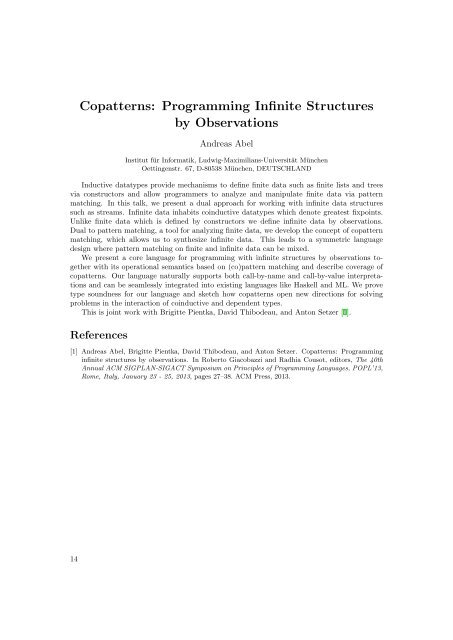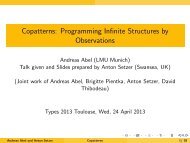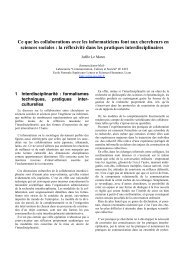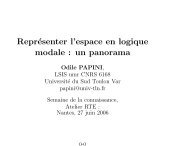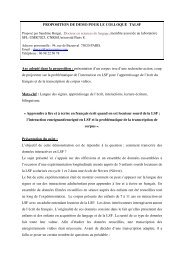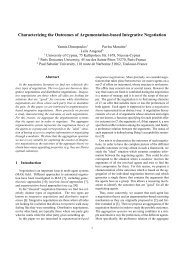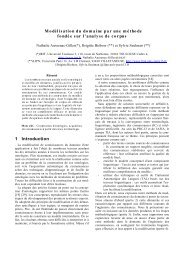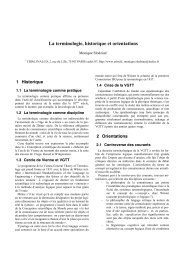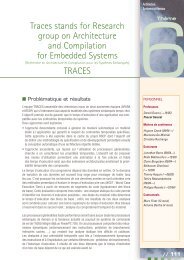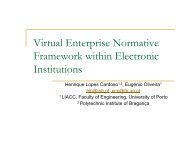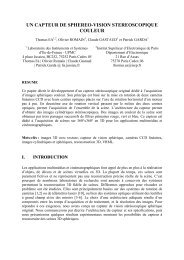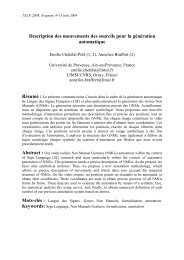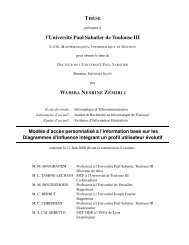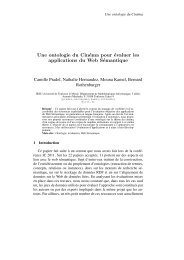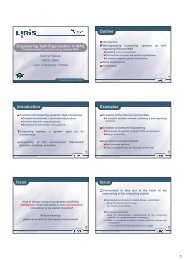Book of Abstracts - IRIT
Book of Abstracts - IRIT
Book of Abstracts - IRIT
Create successful ePaper yourself
Turn your PDF publications into a flip-book with our unique Google optimized e-Paper software.
Copatterns: Programming Infinite Structures<br />
by Observations<br />
Andreas Abel<br />
Institut für Informatik, Ludwig-Maximilians-Universität München<br />
Oettingenstr. 67, D-80538 München, DEUTSCHLAND<br />
Inductive datatypes provide mechanisms to define finite data such as finite lists and trees<br />
via constructors and allow programmers to analyze and manipulate finite data via pattern<br />
matching. In this talk, we present a dual approach for working with infinite data structures<br />
such as streams. Infinite data inhabits coinductive datatypes which denote greatest fixpoints.<br />
Unlike finite data which is defined by constructors we define infinite data by observations.<br />
Dual to pattern matching, a tool for analyzing finite data, we develop the concept <strong>of</strong> copattern<br />
matching, which allows us to synthesize infinite data. This leads to a symmetric language<br />
design where pattern matching on finite and infinite data can be mixed.<br />
We present a core language for programming with infinite structures by observations together<br />
with its operational semantics based on (co)pattern matching and describe coverage <strong>of</strong><br />
copatterns. Our language naturally supports both call-by-name and call-by-value interpretations<br />
and can be seamlessly integrated into existing languages like Haskell and ML. We prove<br />
type soundness for our language and sketch how copatterns open new directions for solving<br />
problems in the interaction <strong>of</strong> coinductive and dependent types.<br />
This is joint work with Brigitte Pientka, David Thibodeau, and Anton Setzer [1].<br />
References<br />
[1] Andreas Abel, Brigitte Pientka, David Thibodeau, and Anton Setzer. Copatterns: Programming<br />
infinite structures by observations. In Roberto Giacobazzi and Radhia Cousot, editors, The 40th<br />
Annual ACM SIGPLAN-SIGACT Symposium on Principles <strong>of</strong> Programming Languages, POPL’13,<br />
Rome, Italy, January 23 - 25, 2013, pages 27–38. ACM Press, 2013.<br />
14


